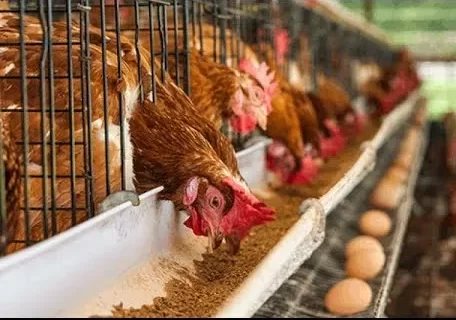The Ghana National Association of Poultry Farmers (GNAPF) has said the current drop in the price of maize – the main commodity for poultry feed – is a sign that the sector will recover in 2024.
The relief comes after several years of concerns over the high cost of production, which includes the price of raw materials for animal feed production – particularly from 2022 and throughout the whole of last year.
GNAPF’s President, Victor Oppong Adjei, told B&FT that the price for a 50kg bag of maize, which sold at GH¢280 throughout last year, is now sold at GH¢200.
The drop in price of maize, he said, positively impacted the farmgate price of chicken during the festive season.
“The white-colour broiler, depending on size, was sold at GH¢150 and GH¢70 for the brown colour at the farmgate. These are the highest amounts – which of course are different from retail prices on the market,” Mr. Oppong Adjei said.
The association maintains that high feed costs remain a major concern for both poultry and livestock industry players, as it has a cascading effect on poultry and meat consumers.
Middlemen may determine price stability
Mr. Oppong Adjei however explained that it remains unclear whether the price drop is a temporary one or will stay for the greater part of this year.
“What normally happens is that some middlemen take advantage of the current price and hoard the commodity for future price increases. These middlemen may in the long-run create artificial shortages, which could bring farmers back to their knees,” he revealed.
Assurance from MoFA to stabilise prices
In December 2023, Food and Agriculture Minister Dr. Bryan Acheampong – at a meeting with the GNAPF – assured that the ministry will in this year implement a stabilisation price-tag on maize across the country in order to assist poultry farmers reduce cost of production.
Planned investments in poultry sector
At the Dakar II Summit in 2023, government said it would invest some US$541million to improve the local poultry industry, an assurance that was one of the key resolutions at the event.
This decision is expected to improve the local poultry industry and position it to curb rising imports, which are in excess of over US$600million per annum.
The investment is anticipated to accordingly increase local poultry production from the current 50,000 tonnes annually to an envisaged 450,000 tonnes.
Of the US$541million, about US$69million will be expended on feed-mills expansion and upgrading to reduce poultry-feed costs.










